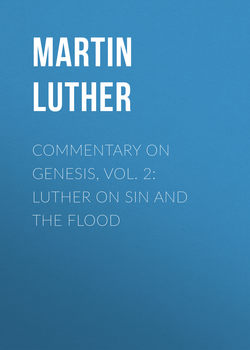Читать книгу Commentary on Genesis, Vol. 2: Luther on Sin and the Flood - Martin Luther - Страница 11
FOREWORD
Luther and World-Evangelization
English Luther in German and Scandinavian Churches
ОглавлениеApril 12th, 1910, became a memorable date in the North-west by the introduction of the Scandinavian languages into all the high schools of Minneapolis. German and Scandinavian taxpayers are gradually becoming more interested in having their children learn the language of their mothers in the public schools. This will prove to be a great blessing to children and home, society and state. The Church however will blunder, if she thinks there will now be no need of circulating English literature in German and Scandinavian congregations. Translating Luther and teaching German and Scandinavian are two ways of doing the same thing, for language is not an end, but a means to an end. Many young people are being confirmed in English and they often attend services in foreign languages. Many know more of the language than of the matter preached. When weak in the language they understand better what is preached if they are familiar with the thought. The reason many do not appreciate a sermon with the Luther ring is because they are familiar with neither the language nor the thought. Hence the need of our young people becoming familiar with Luther's sermons and commentaries in English. One understands better in a strange language what he is familiar with. This familiar knowledge would help to bridge the chasm between Lutheran parents and children. Ask parents and they will tell about the "Old Luther Readers," in their native land and tongue. All admit that if the young people are not interested to read Luther in English, they will never read him. All who do will the better understand sermons in German and Scandinavian. The universal reading of the English Luther, on the part of the young people, will therefore help, and not harm, the German and Scandinavian congregations. Luther's teachings thoroughly understood in a living way will bind the young to their Christian convictions, as much as the knowledge of a language binds them to that language. The passive interest therefore, on the part of German and Scandinavian pastors and congregations in circulating the English Luther, as far as their young people are concerned, should give way to active interest, for the sake of their own work in the future. It is important to learn your mother's language. You may do that and forget her faith—Better retain the faith than the language.
J. N. Lenker.
The Fiftieth Day (Pentecost), 1910.
Minneapolis, Minn.
